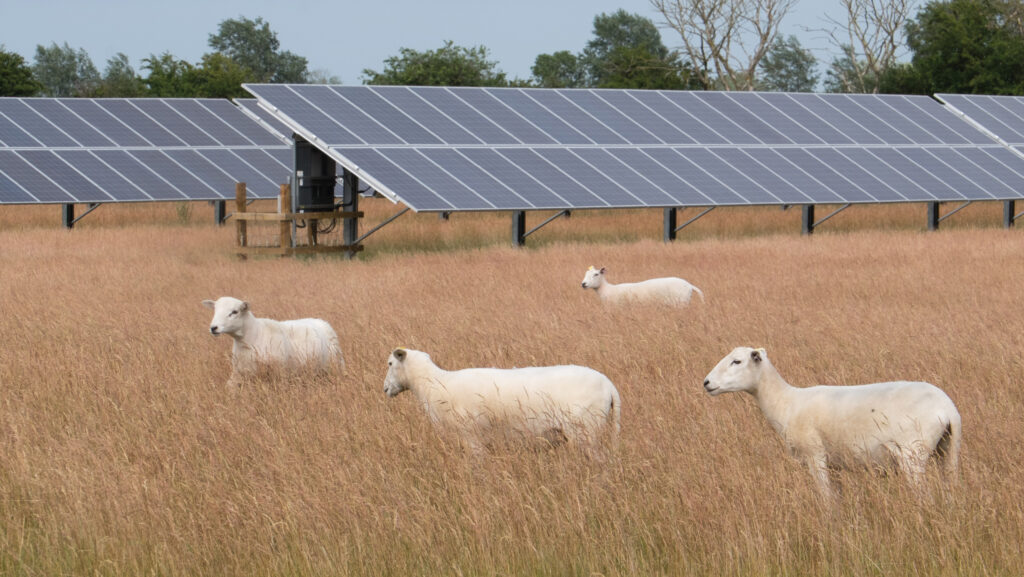Opinion: Solar investment can still benefit farming businesses
 © Tim Scrivener
© Tim Scrivener Farmers are facing countless pressures, from impacts of climate change to financial constraints, crop failures to disease outbreaks.
Combined with population growth, changing tastes and urbanisation, it is incredibly challenging for farming businesses to maintain consistent profits or break even.
And in the UK, where 70% of land is farmed, balancing food and energy production with environmental protection is crucial.
See more: Government tightens solar panels on prime farmland rules
As cries for sustainable agriculture grow louder, the farming industry finds itself in a paradox: pressured to adopt more sustainable practices while struggling with the financial viability of making such transitions.
About the author

Neil Lindsay is managing director of renewable energy company BLC Energy.
The politicisation of food versus fuel production further complicates matters.
Collaborative efforts are, therefore, the only way we can begin creating resilient farming systems.
Recent advances in renewable energy show huge promise for a sustainable future, and we are producing more renewable energy than ever before.
And, despite widespread concerns among the farming community about land use, solar development offers enormous potential, not only for diversifying our energy mix, but also future-proofing farm businesses.
Research from Friends of the Earth reveals that England alone could produce 13 times more renewable energy using less than 3% of its land.
With such promising statistics we must wake up and rethink our approach to long-term land use in this country.
Farmers play a key role in expanding land use beyond food production for sustainable agriculture, conservation, recreation and energy production.
As stewards of the land, it will benefit farmers to understand that solar energy generation can work entirely harmoniously with agriculture, wildlife and nature, while also solving a range of problems.
Solar energy generation is one of the single most effective routes to diversifying farm businesses today.
It is a way of introducing a new revenue stream from less-productive land.
And for the increasing number of farming families lacking succession plans, it provides a solid means of generating income for the future, in many cases for an average of 40 years or more.
When farmland is utilised strategically to generate energy and income from renewable sources, the farmer is shielded by an extra buffer from the challenges posed by financial shocks, such as market movements, extreme environmental conditions and supply chain issues.
At a time when market volatility is making it near-impossible for farming to stay profitable while remaining compliant, solar paves the way for a sustainable and stable income.
In addition to opening up new, more stable income streams, it can also allow for soil restoration and conservation.
Solar can be installed with minimal impact on the earth, allowing the land to enjoy a much-needed rest from traditional agricultural practices and to regenerate.
In the long run, farmers could see improved soil health, which in turn enhances the overall productivity of farmland for the benefit of future generations.
From reducing pesticide and fertiliser use to creating safe havens for pollinators, renewable energy generation can contribute to biodiversity conservation, benefiting the entire farm ecosystem.
Bolstering industry efforts to raise awareness and share knowledge, policymakers and regulators have a crucial role to play in supporting solar integration on farmland.
We all need more clean and sustainable renewable energy, and farmers, like any business, require long-term financial security.
For this to happen we need further political support and policy changes to accelerate towards net-zero targets, as the planet won’t wait, and farmers can’t wait.
